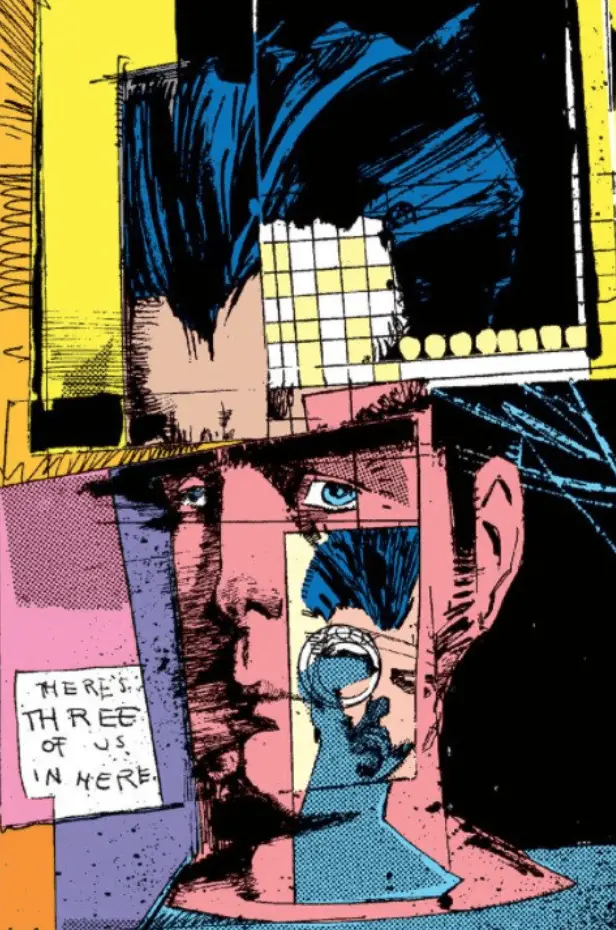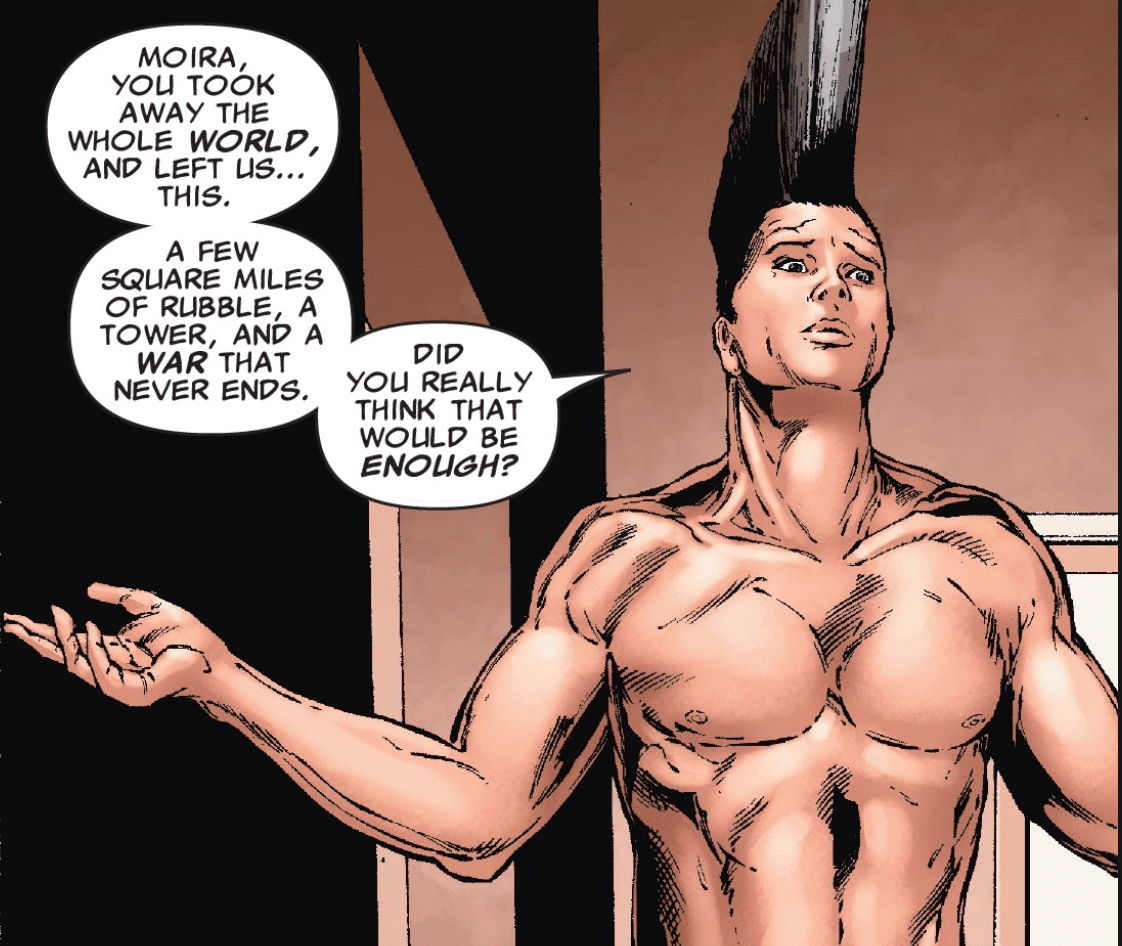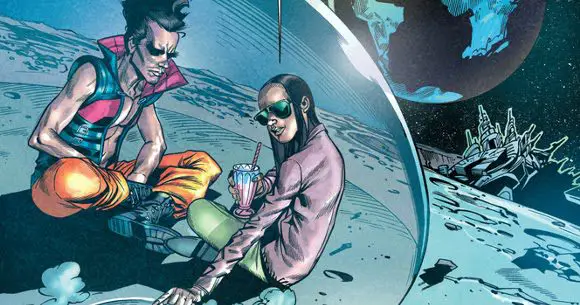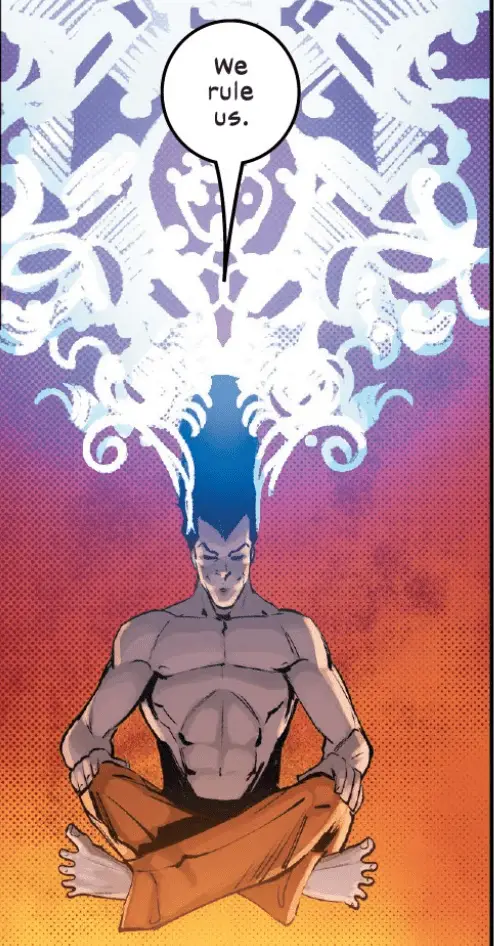As some of you may know, April was Autism Awareness/Acceptance Month. Sadly, Marvel has an embarrassingly low amount of canonically autistic characters so the berth of representation falls on the few we do have. One of these characters being David Haller, better known as Legion. Since his introduction, he’s been through a lot. Originally presented as autistic with “multiple-personality disorder,” few comics characters represent the changing presentation of neurodiversity like Legion.

First introduced by Chris Claremont and Bill Sienkiewicz in 1985’s New Mutants #25, it’s quickly made clear that David would be diagnosed with what we now call Dissociative Identity Disorder(DID). He’s plagued by several personalities other than his own, including a terrorist named Karami who acts as the villain of the arc. However, due to a misunderstanding of mental diagnoses in general, David is also identified many times as autistic. He’s irascible, throws tantrums, and is presented as almost childlike; all common tropes for autistics in the 80’s.

Now every autistic person can obviously form and have their own opinion on David and how he is portrayed. Throughout the 90’s and 00’s David (as Legion) inadvertently causes both the Age of Apocalypse and the Age of X reality warp events. He accidentally kills his father as the titular antagonist of Legion Quest, setting off the Age of Apocalypse and eventually ending the event with his apparent death(he gets better). More dubiously offensive portrayals later (New Mutants Vol. 3 stands out in particular), on the island haven of Utopia, David’s alters create another warped reality to defend against the meddling of Dr. Nemesis kicking off the Age of X event.
I read this lead up to Age of X as a stand in for an autistic meltdown. David, as the “host” of the system of alternate personalities within him, is overloaded with emotions that he cannot process. When someone with autism who is not a superpowered mutant has a meltdown, we can lash out, we can physically shut down, we become so overwhelmed and fatigued it is physically and emotionally exhausting. Pair that with a slew of superpowers and we get what becomes known as the Age of X. In this alternate world he has created, David is “normal”. He does not appear to have any of the traits associated with him and his neurodiversity previously. This is presented as a form of “escapism” for the powerful psychic. The alternate reality ends with Legion coming back into the “real” world, not unlike how it feels to come back from a meltdown.

When David truly seems to change from an awkward amalgamation of misunderstood mental diagnoses towards something of a realistic portrayal of someone struggling with mental disorders is in Si Spurrier’s X-Men Legacy. We meet David in the Himalayas learning meditation and control from a guru and showing much more control over his powers. This is all, once again, thrown into disarray but this time by the death of his father, Charles Xavier. On the brink of another possible meltdown; David meets Ruth Aldine, his self-proclaimed nemesis who kisses him upon first meeting in his mindscape. This will make all the difference.
Ruth and David begin a romantic relationship, largely existing in his mindscape. The simple act of having someone listen to him and be in his corner keeps David much more grounded than we have previously seen whilst close to a meltdown. For the first time David feels like he has someone who is wholly on his side. Almost every person who has claimed to stand with David has ultimately only been interested in “fixing” him until Ruth. At the end of X-Men Legacy David has integrated his alters and has a new mantra for himself that Ruth adapts as well. “I rule me.”

I will be skipping over 2018’s Legion miniseries because, frankly, it’s bad. It feels like a regression to everything that had been done to build up the character since Legion Quest. I cannot speak on how David’s DID is portrayed in this series or others, and I have never spoken to any DID systems at length about David. The consistent fragmentation and re-integration of David’s alters over his publication have made it difficult to find a consistent level of understanding with his mental health. Si Spurrier has made the most level characterization between his work on Legacy and more recently in Way of X.

In more recent comics, David has been written more authentically as an autistic adult. He messes up, he has times where he ignores boundaries or social cues, he has two floating telepaths (the Xorn brothers) with stars in their head around him to lobotomize him if he has a meltdown. But he also shows forgiveness and empathy, he watches and learns and draws his own conclusions. While he may have started off as just a misunderstanding of mental diagnoses David has grown into realistic autistic representation. I believe continuing the story that Spurrier has been writing for him will only bring out the best in David, and with Legion of X right around the corner, I cannot wait to read it.
Images via Marvel Comics
Have strong thoughts about this piece you need to share? Or maybe there’s something else on your mind you’re wanting to talk about with fellow Fandomentals? Head on over to our Community server to join in the conversation!

